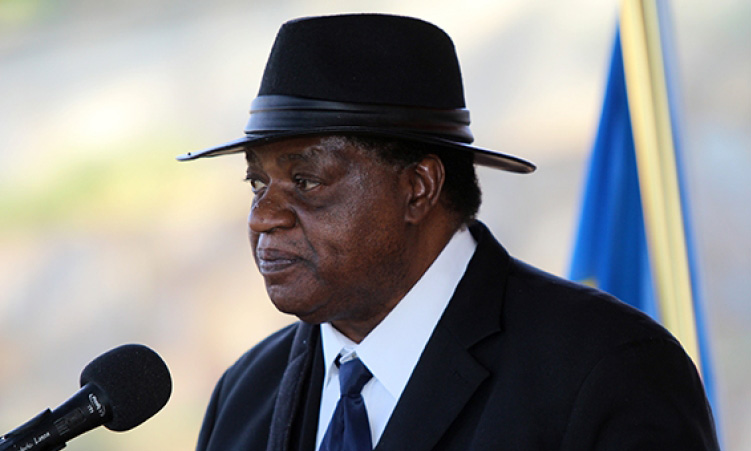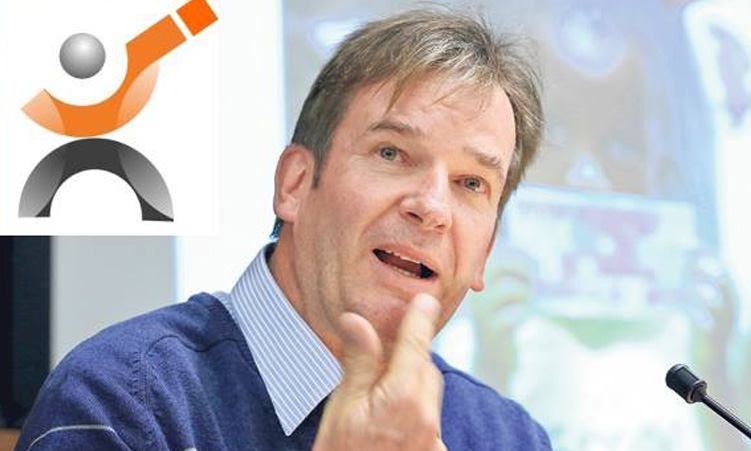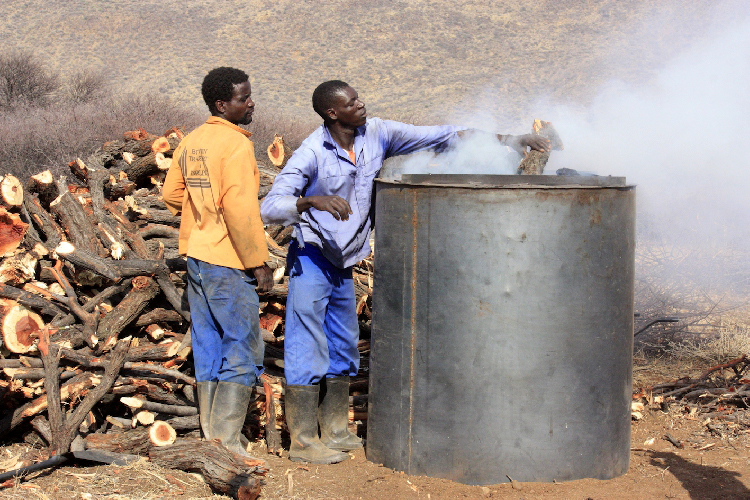The implementation of a national minimum wage is facing scrutiny, with labour experts questioning its effectiveness.
While acknowledging potential benefits with proper enforcement, labour expert Herbert Jauch has raised concerns over a historical lack of compliance and the pressure of the high unemployment rate.
This comes as the Cabinet has approved the implementation of a national minimum wage of N$18 per hour.
This decision, championed by labour, industrial relations and employment creation minister Utoni Nujoma, will take effect in January 2025.
The minimum wage will be reviewed after two years.

‘NO CEILING WAGE’
Labour executive director Lydia Indombo says the introduction of a national minimum wage does not replace bargaining power, but simply aims to set a “floor wage”, especially for the lowest paid employees.
“It is prohibited for employers to reduce the wages of their employees, and therefore employers who are currently paying more than the anticipated national minimum wage must not reduce the salaries of their workers to N$18 per hour. “The national minimum wage is barely minimum, and not a ceiling wage,” she says.
Currently, minimum wages have been set for only the security, agriculture, construction and domestic sectors.
Other sectors have been subjected to offer-and-take wages, which in most cases are low.
For domestic workers, the national minimum wage will be phased in incrementally over a period of three years, involving that they are paid N$12,02 per hour during the first year of the introduction of the national minimum wage, N$15,01 per hour in the second year, and subsequently an amount of N$18 per hour in the third year.
Domestic workers are currently paid a minimum of N$9,03 per hour as per the Wage Order for Domestic Workers.
Employees in the agriculture sector who are currently paid a minimum of N$6 per hour plus pay in-kind as per the collective agreement in the agriculture sector, will be paid N$10 per hour in the first year, N$14 per hour in the second year, and N$18 per hour in the third year, exclusive of in-kind payments.
A notice will be issued in the Government Gazette in July with the full details of the national minimum wage.
“Once implemented, the national minimum wage will help in improving the wages of the lowest-paid workers, reducing income inequality, alleviating poverty, improving individual and household income and achieving a decent standard of living for all,” Indombo says.

‘STILL NOT ENOUGH’
However, Jauch says this minimum wage does not really give the Namibian labour market a new dimension.
“It is still below what’s needed to lead a decent human life,” he says.
Jauch says if implemented across the board and it is policed properly and employers comply with it, a national minimum wage could be beneficial.
He says years of poor enforcement have shown how easily existing minimum wages are flouted in sectors like construction and security.
“We have that huge challenge of how to make sure it is enforced, and this is made worse by the high level of unemployment, which gives employers the opportunity to find workers quite easily, and then to offer them a fee, and if they don’t like it, they can get someone else,” Jauch says.
He cautions that enforcing a minimum wage would be tough.
“This is a danger, because the minimum wage, instead of being seen as the absolute minimum for very lowly paid workers, could become the norm,” Jauch says.
Another labour expert, Sydwill Scholtz, says setting a national minimum wage would eliminate the exploitation of workers and ensure that at least every working Namibian is able to provide for themselves to a certain extent.
“What could improve the matter is a proper benchmarking exercise to determine the average cost of a decent living standard, and tying that to a minimum wage amount,” he says.
Namibia Revolutionary Transport Union (Naretu) leader Petersen Kambinda says he commends the Cabinet for endorsing a national minimum wage, adding that many Namibians have been earning “slave wages”.
He says he hopes that people would now start earning better wages.
“The labour minister has done a commendable job by appointing the wage commission,” he says.
Kambinda, however, says the introduction of the national wage bill would not affect the industry he represents.
“Naretu’s call is for each industry to have its own gazetted wages. That is the only way our people would start earning decent salaries. This is the first step in the right direction.
“We hope the next step is to address specific sectors and industries. For everyone to feel protected and valued in the Namibian House, their income needs to be regulated, especially the minimum wage for each industry,” he says.
Kambinda says if wages are generalised, economic freedom will not be achieved.

‘CONTRADICTS CONSTITUTION’
Namibia Economic Freedom Fighters commissar for economic development Michael Amushelelo says a national minimum wage contradicts the Namibian Constitution.
“Our Constitution refers to a living wage. Article 95 (i) is also relevant when it expresses that the state ought to ‘actively promote . . . the insurance that workers are paid a living wage adequate for the maintenance of a decent standard of living’,” he says.
According to Amushelelo, the government ought to be promoting a living wage as opposed to a minimum wage.
“It is great to note that the Cabinet is finally waking up and realising that the majority of our people are still exploited by being underpaid. So the proposed N$18 per hour minimum is very welcomed, however, knowing how the capitalist system works, they will simply reduce the working hours of the workers to make sure workers are paid the same low wages,” he says.
Amushelelo says it would be wise if the Cabinet gave a directive that working hours must not be reduced “just so that workers can be paid low wages”.
Trade Union Congress of Namibia secretary general Mahongora Kavihuha says the endorsement is long overdue.
“The rate of N$18 should have been relooked at before the endorsement, because by now it is little and does not speak to the needs of the workers,” he says.
National Union of Namibian Workers acting president Philip Munenguni says the implementation should be rolled out soon to restore the dignity of workers.
“This is a positive move appreciated and it’s appreciated by workers, especially the ones who have been earning low wages. Our great concern is over how the regulation and implementation would be done in the informal sector, since we have a lot of people employed in the sector who do not have contracts,” he says.
Stay informed with The Namibian – your source for credible journalism. Get in-depth reporting and opinions for
only N$85 a month. Invest in journalism, invest in democracy –
Subscribe Now!







